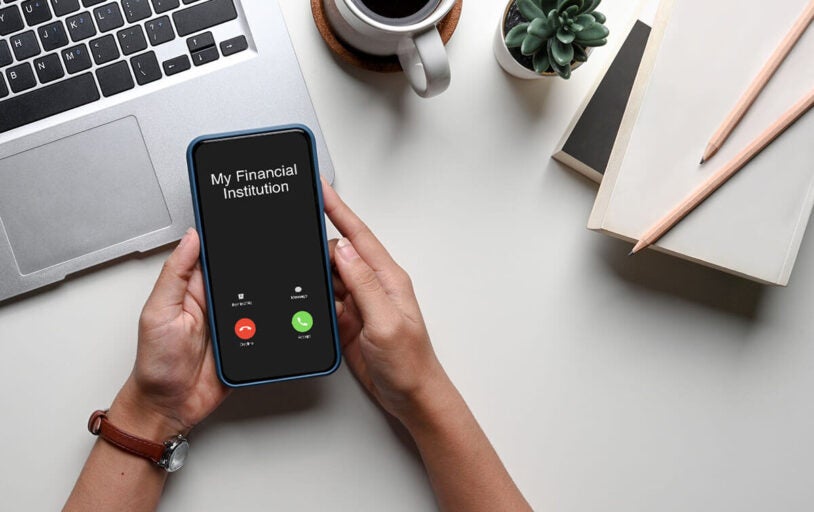
Online Dating & Fraud: How to Stay Safe While You Date
2/06/2025

In today’s digital world, online dating has become a go-to way for people to meet new people. But while dating apps can be fun and exciting, there’s also a not-so-fun side to the world of online dating: fraud. Scammers and fraudsters have learned to use these platforms to trick people into giving them money or personal information. And the worst part? They’re getting really good at it.
Let’s break down what online dating fraud is, how to spot it, and—most importantly—how to protect yourself so you can stay safe while enjoying the dating world.
Why is Online Dating a Target for Scammers?
Online dating platforms are a prime target for scammers because they allow people to connect quickly and privately, often without face-to-face interaction. This makes it easier for fraudsters to build fake identities, play on emotions, and manipulate others into giving them money or personal details.
Common Types of Online Dating Fraud
Romance Scams
These are one of the most common types of fraud in the online dating world. A scammer will create a fake profile, often with stolen photos, and develop a relationship with you. After a while, they’ll make up a story about needing money for an emergency, such as medical bills or travel expenses. And once you send the money, they’re gone. This kind of scam is often referred to as getting “catfished,” where someone lures you into a fake relationship with a false identity, only to deceive you for their own gain.
Identity Theft
Some scammers may try to gather as much personal information as they can on you while engaging in seemingly innocent conversation. They may ask questions about your job, address, phone number, or banking details, which they’ll use to steal your identity and open accounts in your name.
Phishing
This one is sneaky. Scammers send fake links that look like legitimate websites (think fake bank sites or social media pages) to trick you into entering personal info, like your login credentials or bank details.
Red Flags to Watch Out For
It’s not always easy to tell if you’re being scammed, but there are some clear warning signs to look out for:
- Too Perfect Profiles: If someone’s profile seems too polished or their pictures look like they came straight out of a magazine photo shoot, be suspicious. Scammers often use stock photos or stolen images to create convincing profiles.
- Fast Moves: If they’re moving things along way too quickly, like saying “I love you” after a few days of chatting, that’s a major red flag—well, that’s a red flag no matter what. Real relationships take time to build.
- Requests for Money: This is a big one. If someone you’ve just met online starts asking for money (for anything), especially for something urgent, you should be very cautious. No matter how convincing their story may sound, it’s almost always a scam.
- Inconsistent Stories: If their backstory doesn’t quite add up or they avoid answering simple questions, you might be dealing with a scammer. A real person will be open and willing to share details about their life.
Tips to Protect Yourself
The best defense against online dating fraud is being informed and cautious. Here are some tips to protect yourself.
- Do Your Research: Search for the person’s profile pictures on reverse image search engines like Google images. This can help you spot stolen photos used in multiple fake profiles.
- Never Share Personal Information: Don’t share sensitive details like your full name, address, or banking information until you’ve built trust over time.
- Use Trusted Dating Apps: Stick to dating websites that have a reputation for safety and privacy and always report suspicious activity to the platform administrators.
- Talk to Someone You Trust: If you’re ever unsure about someone you’ve met online, talk it through with a friend or family member. They can offer a new perspective and might spot things you didn’t notice.
- Keep Conversations on the Platform: Keep all conversations on the dating app or website until you feel comfortable. Once you start texting, emailing, or talking on the phone, it’s easier for scammers to manipulate you.
And if you do think you’ve fallen victim to a scam, it’s important to act quickly. There are steps you can take to protect your identity and report fraudulent activity. If you suspect fraud and you bank with Arkansas Federal, there are resources on how to recover and protect yourself moving forward.
Final Thoughts
Online dating can be an exciting way to meet new people, but you need to be aware of the risks involved. Always trust your instincts and remember that scammers often move quickly — don’t let them catch you off guard.
Stay safe and happy dating!
Explore More
-
Read Teaching Your Kids About Financial Cybersecurity 
-
Read Stay Safe This Holiday Shopping Season 
Stay Safe This Holiday Shopping Season
-
Read Fraud Prevention - Stay Safe. Stay Aware. 
Fraud Prevention - Stay Safe. Stay Aware.

